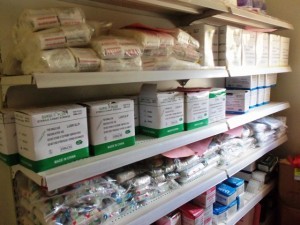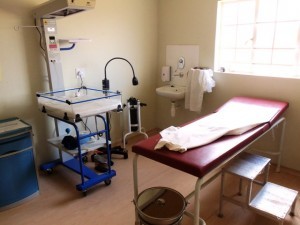Integrating into My Rural Village in Lesotho
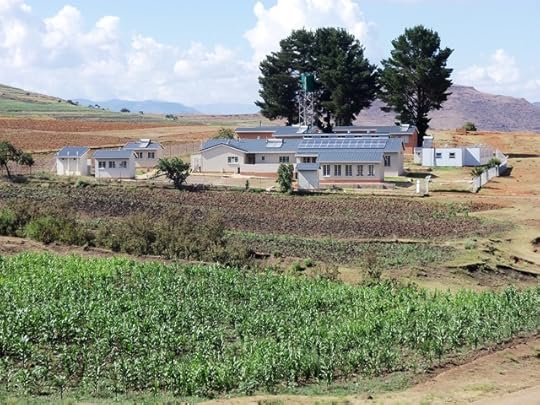
The American built clinic in a rural village in Lesotho, southern Africa
Visiting my local clinic is an important part of integrating into my community as a Peace Corps volunteer. I live in a rural part of Lesotho, a small landlocked country in southern Africa.
I want to find out whether rural clinics are providing ARV’s (Antiretroviral) medication to HIV patients in my area, and if they teach sex education and condom use in schools. Peace Corps informed us that 30% of girls between 20-24, have HIV in Maseru, the capital of Lesotho, and 23% of the total population has HIV/AIDS, which makes Lesotho the country with the second highest prevalence rate in the world.
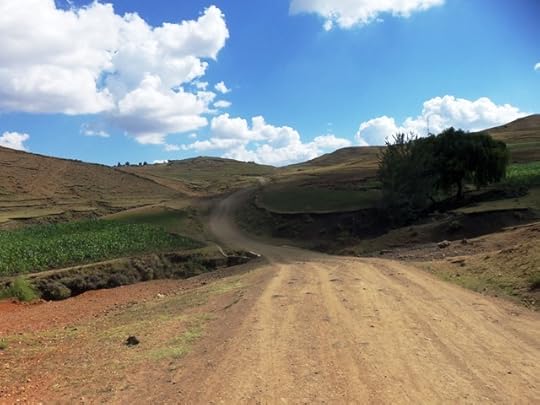
Road to the clinic
My host mother, ‘M’e, and I walk along the two kilometer stretch of dirt road to the clinic; the one I visited on a previous weekend, and discovered it was closed. (Apparently it’s only open on weekdays.)
The clinic is super modern, built three years ago, with U.S. funds. The waiting room has metal chairs arranged in airport-style seating, and I asked ‘M’e how does the staff know the order of the patients arriving, since there is no check-in system. “They just do,” she replied.
A flat screen TV with a Basotho soap, entertains the patients. They are laughing and chatting away and I feel like I’m inside someone’s house, waiting for the popcorn to be passed around.
‘M’e introduces me to the head nurse, and all of a sudden, I get the VIP treatment. I walk past all the patients, and follow nurse to her office. There another nurse is talking to a patient.
I feel uncomfortable knowing that twenty or so patients are sitting in the waiting room, and these two nurses are allowing me to ask them questions about the clinic.
In the three months I’ve been in Lesotho, I realize the importance of forming relationships, so I ask the nurses if they have children, and let them talk about themselves first, before interviewing them about their work.
The younger nurse is six-months pregnant and is sitting on the edge of the desk, holding a blood pressure cuff. I joke around and ask her to take my blood pressure.
“The batteries are dead and we don’t have other batteries,” she says.
“Do you have a manual one?” I ask, demonstrating the pumping action with my hand.
“No.”
I know ‘M’e came along to get her blood pressure checked so they could give her medicine, so I’m concerned for her.
Peace Corps informed us that local clinics are supposed to send nurses to schools to talk to the children about HIV/AIDS, several times a year, and these nurses told me they had only been out once last year, for three hours, to my assigned school. They taught sexual reproduction health and HIV/AIDS to grades 4 through 7.
“We do not do condom demonstrations because we are Christian,” the nurse said, “We encourage children to come for voluntary HIV testing at the clinic. They have to come with their mother,” she continued.
I was happy to see the shelves fully stocked with ARVs, and other medications which are delivered monthly through NDSO (National Drug Service Organization,) according to what I was i
My ‘M’e sticks her head through the door and says, “People are waiting.”
I feel guilty taking up so much time.
“They wouldn’t let me go,” I said in the hallway.
She returns to watch the soap, and arranges for the cleaning lady/pharmacist, yes, they wear many hats in this clinic, to show me around.
She takes me on a tour of all the buildings, and I’m in shock. There is a delivery room with a baby monitor, and apparently only 7 babies have been delivered there since the clinic opened, three years prior.
There is also a room with a fridge and gas stove, all equipped with brand new cooking pots, and this room has never been used, and when I ask her why? she says, “There aren’t enough nurses to take care of the women who are waiting to deliver their babies.” There is a ward with eight brand new beds, which is not being used. Another building has a shower, a toilet and a sink, and the floor shows signs of a previous leak, so I ask if they have running water, and she says, “No, because of the leaking toilet.”
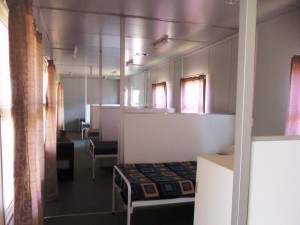
large maternity ward
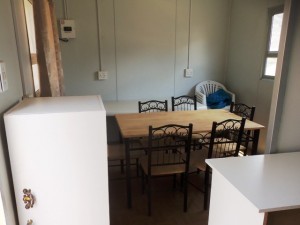
New kitchen for moms, never used.

Mother-baby packs available, but not sure if they are given away
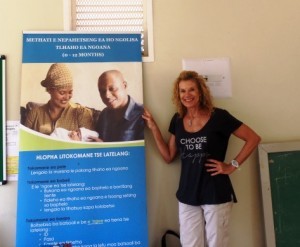
A nice workshop room at the center
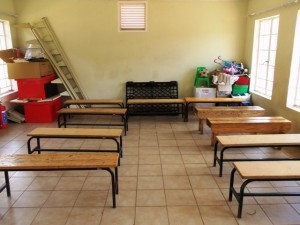
Seating in the workshop room
I am happy to see that ARVs, and being given to patients with HIV, but due to a lack of government funding, there is a shortage of nurses. This is what I was told.
The post Integrating into My Rural Village in Lesotho appeared first on Sonia Marsh - Gutsy Living.



